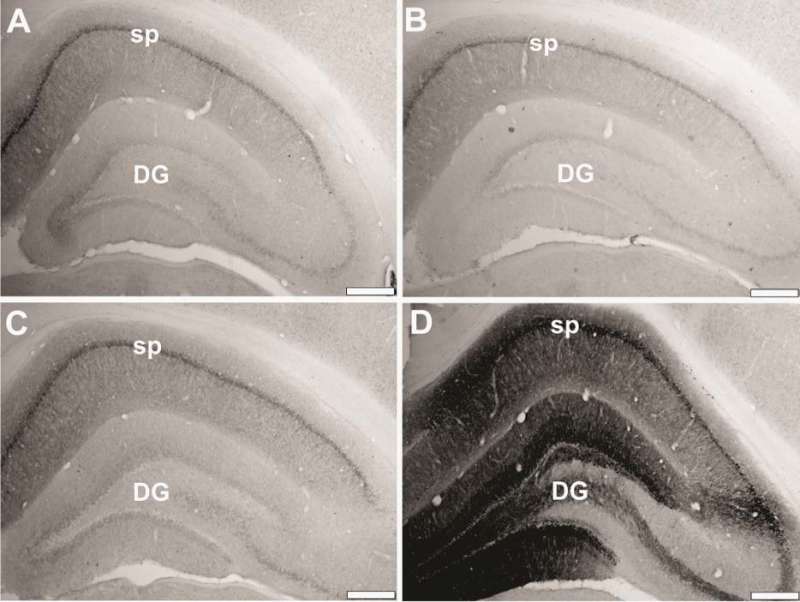Restoring aging genes in rats

Overexpression of a protein that regulates calcium homeostasis in hippocampal neurons can safely and effectively reverse and prevent age-related memory impairments in rats while restoring altered gene expression, finds new research published in the Journal of Neuroscience.
Philip Landfield, John Gant, Eric Blalock and colleagues found that long-term and short-term treatment of aging rats that induces overexpression of FK506-Binding Protein 12.6/1b (FKBP1b) restored the expression of more than 800 genes affected by aging to levels comparable to those of young untreated rats, in addition to improving performance on a water maze task.
The restored genes represent a new genomic network that regulates the integrity of neuronal structure in the hippocampus and is targeted by aging.
These results suggest that addressing FKBP1b deficiency may represent a new avenue for countering age-related memory loss.
More information: DOI: 10.1523/JNEUROSCI.2234-17.2017














